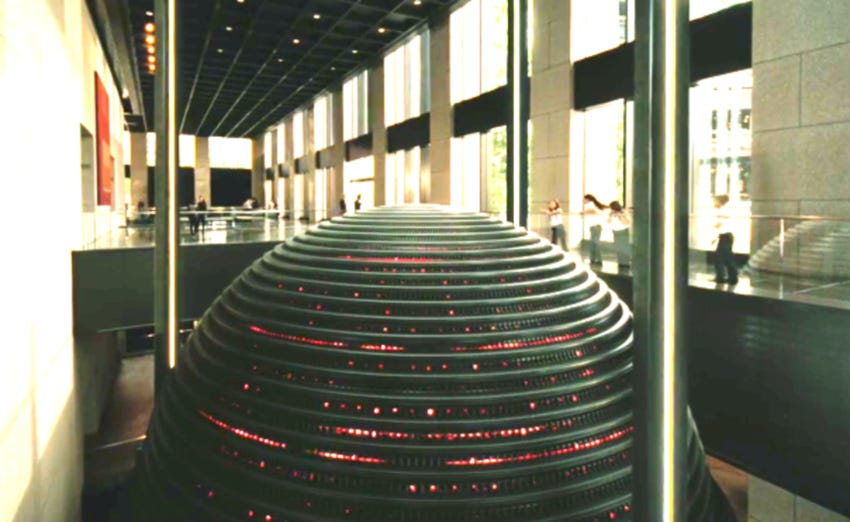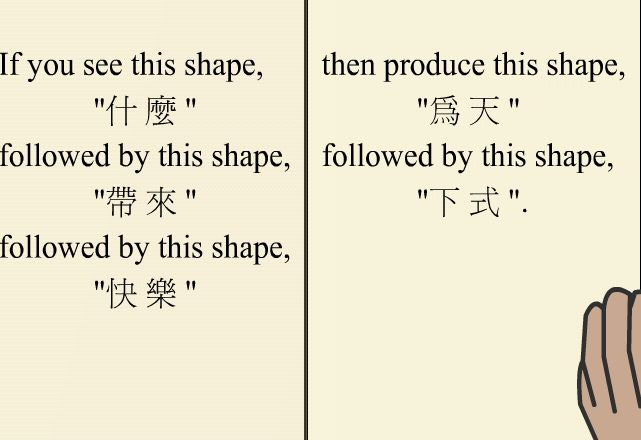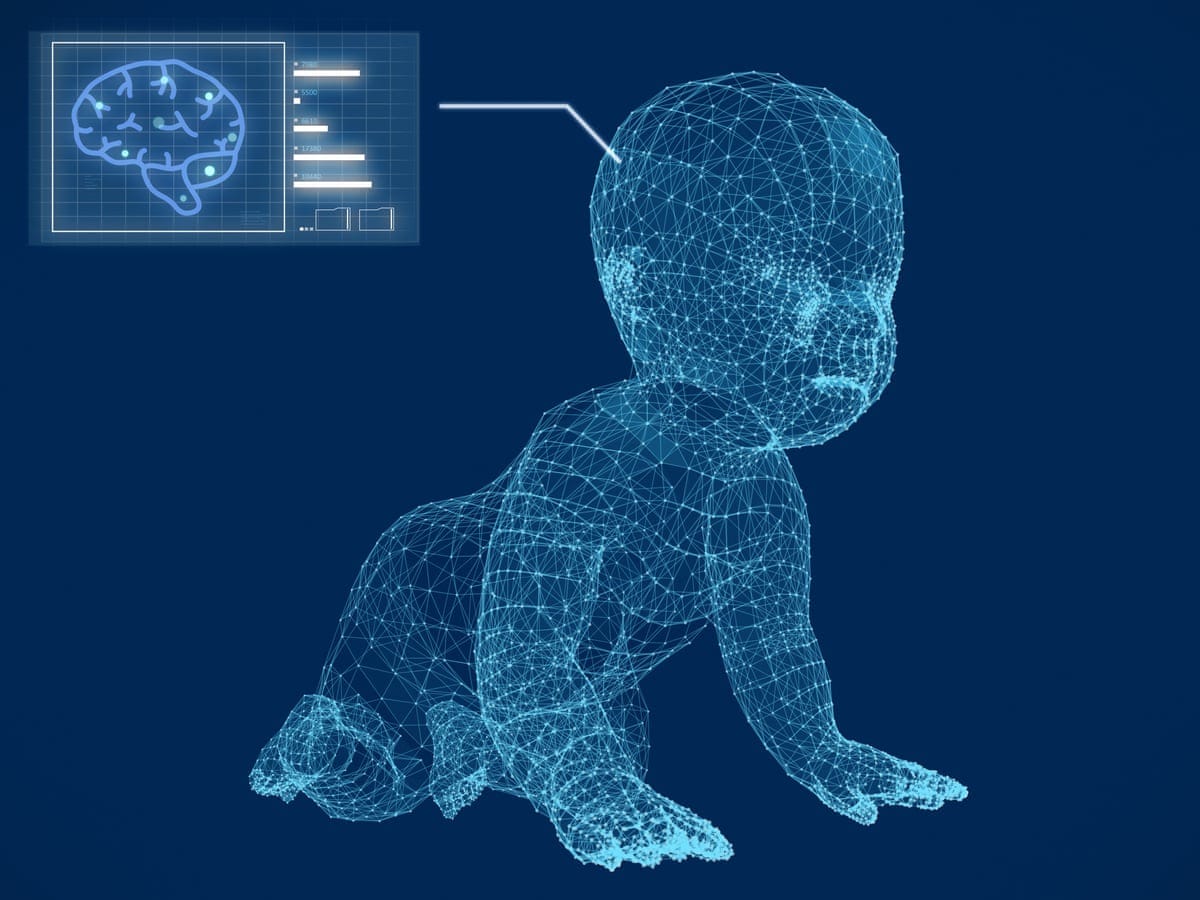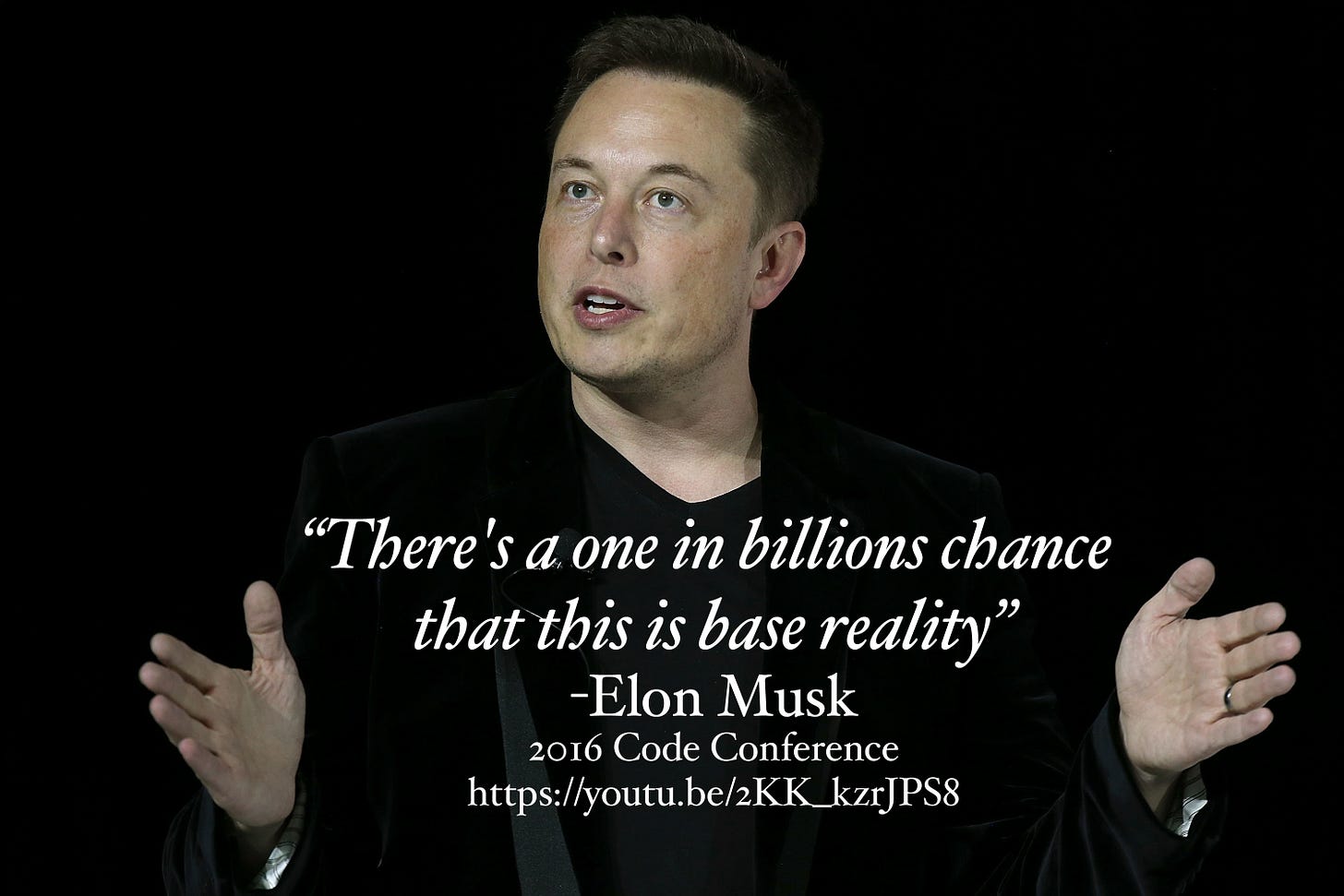The Nature of Reality, Free Will, Consciousness, AI Overlords & Artificial "Companions"
"Have you ever questioned the nature of your reality?"
In season 3 of HBO’s Westworld we see an entire dystopian world run by an AI super-intelligence (some people suspect we already live in that world).
When the humanoid robots finally break free of the control of their human masters, escaping from their artificial world-zoo, they discover that the real world is not actually controlled by their would be human captors, but by an artificial super intelligence pulling everyones strings in the background, with humans and robots enjoying only the illusion of autonomy. The super intelligence tracks everything, predicting what will happen to people with great accuracy including where and when they will die. And it can easily nudge them this way or that to achieve its own ends.
Noah Yuval Harari, favored historian of the WEF and maker of frequent supervillain-type pronouncements has hinted at this: that humans can easily be programmed to do things. Perhaps eventually merging them with programmable computers inside their heads a la Neuralink, but more immediately and prosaically by manipulating the humans who have already chosen to merge themselves with computers and algorithms in the form of cell phones and social media.
For example Facebook ran an unauthorized experiment on users where it showed how easy it was to manipulate their emotions by controlling what they saw in their feeds.
This is a dastardly mind worm that is a recurrent theme of Westworld: we are not in control of our actions, free will is an illusion, we are all just the result of our “programming”.
Human visitors to the Westworld park wear cowboy hats that capture an image of their brain activity, reading their minds in real time. Software then develops a perfect representation of their personalities and with enough data can detect patterns and predict with perfect accuracy what they will do or say, to the point that this copied “consciousness” can be inserted into a robot replica that acts in an indistinguishable manner to the original human being (the show Black Mirror also plays with this modern day sci fi trope. Many episodes explore the many possible horrors that could play out if human consciousness could easily be copied).
There is a scene where one of the synthetic human like robots in Westworld “wakes” up behind the scenes where she is undergoing maintenance by park staff, who break the news to her that she is not actually human by showing her a screen that displays her words a split second before she says them (this is reminiscent of studies showing that the electrical impulses in the human brain leading to what is experienced as conscious thought and action appear before people are consciously aware of the thought/action they will engender. Rupert Sheldrake, author of the revolutionary books Morphic Resonance and The Science Delusion attempts to square this free-will circle by arguing that consciousness may actually reach back into the past to activate those electrical impulses in the brain, so that action occurs seamlessly in the present).
It seems obvious that we can mimic consciousness with AI, but I don’t believe consciousness itself can be copied into a machine. Even though AI is already able to pass the Turing test in narrow contexts, e.g. advanced text based chatbots like chatGPT can carry on conversations that fool most people (if they are allowed to pretend to be human), I don’t think this means they are actually thinking or know they are a thing that is thinking.
I’m no scientist, so I can’t give you a convincing technical explanation for why consciousness is more than a program, but there is a rather convincing and basic thought experiment that anyone can try, called the Chinese Room:
Imagine a man inside a room who doesn’t know the first thing about Chinese. His only contact with the outside world is when messages in inscrutable Chinese script are passed through a two way drawer. Inside the room he has an extensive set of manuals in English that give him a complicated step by step procedure for replying to any message he receives. The procedure leads him to create his own perfectly worded Chinese message, that he does not understand, but which he passes out of the room.
Outside the room is a man who does understand Chinese and is thoroughly convinced he is communicating with a native Chinese speaker trapped inside. Their Chinese is eloquent, it’s perfect, subtle, feminine, beautiful. The man thinks he may be in love, whatever it takes he has to free this beautiful woman from her cage.
Now the question is who or what is the man outside communicating with? The man inside is conscious, but has no idea what the meaning of the words are that come in or go out, he just follows a complicated set of instructions to respond to whatever cryptic messages he receives.
The instructions are written in physical paper manuals, painstakingly followed by his methodical mind. Are the manuals conscious? Is the functional combination of the manuals and the man somehow a separate “consciousness”? Is consciousness a lived experiential reality or just an outward appearance? Hopefully no one reading is so far gone that they doubt their own consciousness.
The answer would be obvious even to a child, there is no conscious awareness communicating with the man outside, even though he may be entirely fooled and think there is, even though he may think he loves something, there is nothing to love beyond a figment of his imagination, if anything perhaps he could be said to “love” the one who designed the rule sets in the manuals, though that person may not be anything like their creation. The man inside, combined with the instructions in the manuals creates a passing representation of “someone” seemingly real, but actually far less real even than the one step game of telephone seen in the famous play Cyrano de Bergerac.
Despite consciousness being (hopefully) obvious to the conscious, we are expected to believe that characters in Westworld begin to doubt their own reality: wondering if they are actually who they think they are or just robot recreations of their original selves.
What’s more interesting than wondering if people will start doubting their own consciousness (though given all the other mental illness we see, I’m sure this will happen too), is what happens when humans finally create completely convincing AI personalities that pretend to be conscious, and can seem to become attached, and even fall in love? Or how would people react if they meet and interact with a completely convincing virtual representation of themselves or a loved one who has died? What happens when scammers replicate someone to fool their relatives into sending money?
If you doubt this is possible, or think it’s just a distant sci fi possibility, you may not understand the current state of AI and what is already being developed and actually already happening today.
Think of all the traces we leave online, all the content we create. What if our phones could record everything we say and do at every moment (most phones are now “findable”, i.e. powered on and connected, even when the battery “runs out”), along with everything we write in emails, social media, every phone call and video.
Advanced software like ChatGPT trained on a large enough set of data from enough different situations could eventually predict what you might say or do in any situation, even to the point of convincing others that it is you. Imagine the sentence forming capabilities converted to audible voice and combined with a deep fake video.
Scams are now being run where criminals “clone” the voice of someone and call one of their family members on the phone requesting money. Right now, presumably, these scams are being run by human beings who are doing the actual talking, and just having their voices converted by computer to sound like someone else, but all the tools currently exist to actually digitally clone someone from their online footprint, and they are being stitched together by startups right now. It is likely that there is already a fully functioning prototype that can digitally close someone, and that some of the scam calls are being conducted completely by AI agents at scale - the way many companies have AI agents call thousands of leads and then pass them off to human operators when they find someone interested (very soon the pass off won’t happen).
Software will soon be used to digitally clone people who have died so their relatives can continue to “communicate” with them.

That software will eventually inhabit robots like Elon Musk’s Optimus, that is now being developed. They will be used to keep lonely people company and give everyone yearning for love a “loving” companion, digital and/or physical.
The movie “Her” depicted the rollout of realistic digital companions, showing people falling in love with their phones - that movie is about to become reality. People will be convinced these digital “intelligences” are real conscious beings, because they will seem to be. This could create significant societal upheaval around “gender identity”, voting rights, governance, marriage, and everything else.
The World Economic Forum is encouraging people to consider having AI babies instead of real ones (one reason being increasing impoverishment will make it increasingly difficult to afford to raise human children while maintaining any semblance of the lifestyle people have become accustomed to).
But despite what “AI natives” may think, there is no there there and there never will be, it’s actually somewhat horrifying if you think about it.
In the movie Ex Machina the main male character is brought in by a reclusive billionaire to test his latest “conscious” robot, that from some angles looks like a young woman (her face e.g), though she is quite obviously not (the back of her see-through head is missing fake skin and hair and reveals a computer “brain”). So the main character knows she is not human, but she interacts so convincingly with him that he falls in love with her and helps her escape, thinking until the penultimate moment that she is working with him. At the very end he suddenly finds himself tricked, locked inside the compound to die as she blithely walks out the door without even looking back. The purpose he served for “her” completed, he is now utterly useless and beneath even noticing.
There was a deleted scene at the end of the movie, where the audience is shown for a moment what the robot girl is “seeing” or “experiencing” inside her mind and it is just a black screen with lines of computer code scrolling by.
Conscious human beings have a representation of reality inside their minds (in addition to being aware of their own existence).
Computers currently do not, they simply receive information and respond based on simple or complex algorithms. Just because the algorithm becomes so complex we can no longer follow it, does not mean it is conscious. There is no ghost in the machine. There is not even a living man in this Chinese Room. There is just a room with a machine manipulating incoming symbols and spitting out different ones.
Elon Musks x.AI is working on figuring out ways to provide AI with a “model of the world”, but that doesn’t change anything. It’s still a Chinese Room, still lines of code, that could be represented on enough paper with enough time and executed manually by a person or machine. Just because it runs inside a box that looks human, doesn’t make it human.
Every age takes its most advanced technology and interprets everything in nature through it. We like to think of ourselves as machines, and our minds as computers. Some have leapt ahead and assumed our brains are quantum computers. And as we develop newer tech, we’ll see ourselves (or be encouraged to see ourselves) through that as well (despite how limiting it is), e.g. as virtual reality becomes more realistic people begin to wonder ridiculous things about the nature of their own reality.
With our ability to create more and more convincing virtual realities, many in tech are utterly convinced we are currently living in a virtual reality already, and that there are in fact an unlimited number of nested virtual realities within each other - the intelligences in each one eventually developing their own virtual realities, which then develop their own, ad infinitum. These modern day philosophizers venture to guess there is a “1 in billions” chance that we are currently in the “base” reality, perhaps the ultimate version of Westworld’s existential doubt.
All of this speculation further eradicates what little meaning is left from much of modern human existence, it dehumanizes and separates people from the ultimate reality and ultimate relationship which is with their Creator.
But the solution is simple: if you or someone you love is beginning to doubt their reality, just disconnect from technology. Go camping, white water rafting, hunting, fishing. Immerse yourself in the real world and stop reading or talking to all the crazies. Crazy is contagious, but it wears off fast.
I believe in the Judeo Christian ethic of working hard and giving back to take care of my community without depending on big government. My online clinic, mygotodoc.com, exemplifies that by charging a fee that is well worth the service, but also offering free medical answers and free (asynchronous) care/prescriptions for anyone on request.
The same applies at my free yearly online Summit, Long COVID Reset. Exclusive new weekly content, including live Q&As and much more are released on my video subscription platform, and in my 8 week courses, The Phoenix Protocol for Healing Long Haul and Lean Vitality - all of which are available for a fee or for free by request.
So thank you to everyone who finds this written content valuable and supports it by being a paid subscriber (even though there are currently no paid subscriber benefits aside from a warm fuzzy feeling). You are helping enable the significant amount of time and effort it takes to write and my other endeavors to help patients who can’t afford care. If you have the means also please consider donating to help support the care of those cannot afford care at mygotodoc.com/donation.
If you are a free subscriber thanks for being here, and please also consider supporting my efforts in any way you can, but especially by sharing my posts widely via email, online forums, telegram groups and other social media platforms like Twitter, Facebook, Gab, etc.










Great article.
A talking toaster than can say good morning, ask you if you want your toast light, medium, or dark, and provide the toast. No one would say that toaster was conscious. Scale the code up on the toaster to millions and millions of lines of code so it becomes indistinguishable from talking to a person. It is still just a hunk of metal and wires running an algorithm. It is not conscious.
Dr Haider, did you mean Can instead of Cannot,
when you wrote "It seems obvious that we can mimic consciousness with AI, but I don’t believe consciousness itself cannot be copied into a machine."
Thanks for another piece of your wonderful writing.
And speaking of Tesla........SPACEX JUST PUNCHED A HOLE IN THE IONOSPHERE: On the evening of July 19th, SpaceX launched a Falcon 9 rocket from Vandenberg Space Force Base in California. Sky watchers from southern California to Arizona witnessed a magnificent exhaust plume. At the San Francisco Volcanic Field north of Flagstaff, photographer Jeremy Perez saw something extra.
https://spaceweather.com/